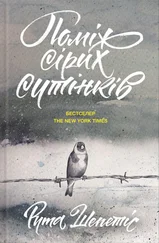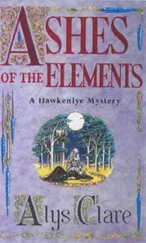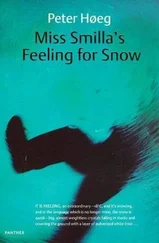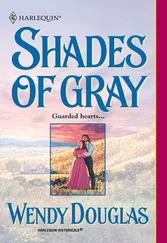“In the depth of winter, I finally learned that within me there lay an invincible summer.”
—
Albert Camus
In 1940, the Soviet Union occupied the Baltic states of Lithuania, Latvia, and Estonia. Shortly thereafter, the Kremlin drafted lists of people considered anti-Soviet who would be executed, sent to prison, or deported into slavery in Siberia. Doctors, lawyers, teachers, military servicemen, writers, business owners, musicians, artists, and even librarians were all considered anti-Soviet and were added to the growing list slated for wholesale exile. The first deportations took place on June 14, 1941.
Separation of family was a form of Soviet terror that facilitated dominance over a nation while undermining identity, human dignity, and endurance. Husbands and fathers were sent to gulags and prison camps, while women, children, and the elderly were transported to forced labor settlements. Many families were never able to reunite. Branches of family trees were forever broken.
This historical period is of personal importance to me because my father is the son of a Lithuanian military officer. Like Joana, he fled with his parents through Germany. After leaving Lithuania, he spent nine years displaced in refugee camps. Like Lina, he had members of his family who were deported and imprisoned.
The horrors the deportees endured were ghastly. Meanwhile, the Soviets ravaged their countries, occupying land, burning libraries, and destroying churches. Caught between the Soviet and Nazi empires, following World War II the Baltic countries disappeared from maps and, sadly, from the minds of many. When I began work on the novel, one survivor assured me through tears, “Ruta, the world has forgotten us.”
I took two trips to Lithuania to research this book. I met with family members, survivors of the deportations, survivors of the gulags, psychologists, historians, and government officials. Many of the events and situations I describe in the novel are experiences related to me by true witnesses and their families, experiences they said were shared by many deportees across Siberia. Although the other characters in this story are fictional, Dr. Samodurov is not. He arrived in the Arctic and reportedly saved many lives.
Those who survived spent ten to fifteen years in Siberia. Upon returning in the mid-1950s, the Lithuanians found that Soviets had occupied their homes, were enjoying all of their belongings, and in some cases had even assumed their names. Everything was lost. The returning deportees were treated as criminals. They were forced to live in restricted areas and were under constant surveillance by the KGB, formerly the NKVD. Speaking about their experience meant immediate imprisonment or deportation back to Siberia. As a result, the horrors they endured went dormant—unexpressed trauma shared by hundreds of thousands remained secret.
Like Lina and Andrius, some deportees married and found comfort in knowing looks and whispers. Beautiful children like Jonas and Janina grew up in forced-labor camps and returned to Lithuania as adults. Countless mothers and wives like Elena perished. Brave souls who feared the truth might be lost forever buried journals and drawings in Baltic soil, risking death if their capsules were discovered by the KGB. Like Lina, many channeled emotion and fear into art and music, the only ways they could express themselves, keeping their nation alive in their hearts. Paintings and drawings were not shared publicly. Art was passed secretly among deportees, encoded with messages and news from the various prison camps. Sketches that included symbols from their homeland were sometimes enough to push detainees onward, to fight—and to live—for another day.
It is estimated that Josef Stalin killed more than twenty million people during his reign of terror. The deportations also affected Poland, Finland, Moldova, and other nations. To this day, some deny the separations and deportations ever happened. For certain countries, the fight for freedom continues.
Some wars are about bombing. For the people of the Baltics, war was about believing. The Soviets took their flag, their family, and their country, but they couldn’t take their spirit. The people chose hope over hate and kept the flame of freedom alive in their hearts. In 1991, after approximately fifty years of brutal occupation, the three Baltic countries regained their independence peacefully and with dignity. Today, Lithuania, Latvia, and Estonia are member countries of NATO and part of the European Union.
Unfortunately, progress isn’t always permanent. But if we look to the past, we discover that history holds our most valuable teachings. Please research the time period. Share the story with someone. Although history contains sadness and pain, it also shines light on hope, courage, and resilience. Through that lens, the history of three small nations teaches us that love is the most powerful army. Whether love of friend, love of country, love of God, or even love of enemy, love reveals the miraculous nature of the human spirit. Through love—and remembrance—all things are possible.
Ruta E. Sepetys
Iam enormously indebted to many wonderful people who have assisted in the journey that is this novel.
Lindsay Davis, who believed in this book from the first page—you are my hero. Steven Malk, whose guidance and music brought me to Writers House. Rebecca Sherman, who assured me I could do it, and the incredible Ken Wright, who appeared on a white horse to make it all possible. I couldn’t ask for better mentors, representation, and friends.
My spectacular editor for this novel, Tamra Tuller, invested unfathomable time and effort. A deep bow to Michael Green, who was brave enough to pull the jar from the earth and finally bring this story to the world. The wonderful Liza Kaplan currently edits my books and prepared this special movie tie-in edition. Shanta Newlin, Jill Santopolo, Talia Benamy, Courtenay Palmer, Camilla Sanderson, Farah Géhy, Liz Moraz, Julia Johnson, Kim Ryan, Eileen Kreit, Ashley Fedor, Maria Fazio, and all of the wonderful people at Philomel and Penguin. Thank you for believing.
My writing group—Sharon Cameron, Amy Eytchison, Rachel Griffith, Linda Ragsdale, Howard Shirley, and Angelika Stegmann. Thank you for your dedication and, most of all, your friendship. I couldn’t have done it without you! Thanks to Laura Goering for her assistance with the Russian language.
Marius Markevicius, Zilvinas Naujokas, Ben York Jones, Ramunas Greicius, Jonathan Dillon, and the entire cast and crew of Ashes in the Snow —thank you for creating a gorgeous film and giving voice to a hidden part of history.
Society of Children’s Book Writers and Illustrators, whose Work-in-Progress grant and conferences helped me realize that I really could write a book. Special thanks to Genetta Adair and Tracy Barrett from SCBWI Midsouth.
Yvonne Seivertson, Niels Bye Nielsen, Fred and Lindsay Wilhelm, Mike Post, Mike Cortese, Jeroen Noordhuis, Louise Ardenfelt Ravnild, Laurence Harry, Heather Napier, Gerry Rosenblatt, JW Scott, Daniel Schmidt, John Wells, Gavin Mikhail, the Reids, the Tuckers, the Peales, and the Smiths have all assisted or supported my efforts on this book from day one.
I owe everything to Mom and Dad, who taught me to dream big and love even bigger. And John and Kristina—my inspiration, my best friends. My dream is to someday write as well as you.
And my husband, Michael, who suggested I begin writing in the first place. Your love gave me the courage and the wings. You are my everything.
LITHUANIAN ACKNOWLEDGMENTS
Without Linas Zabaliunas, this book simply would not have been possible. Linas directed me to countless individuals for my research, provided translation, accompanied me throughout Lithuania, provided spurgos and cepelinai, and even arranged for me to be locked away in a former Soviet prison. Ačiū labai, my friend!
Читать дальше
![Рута Шепетис Ashes in the Snow [aka Between Shades of Gray] обложка книги](/books/414915/ruta-shepetis-ashes-in-the-snow-aka-between-shades-cover.webp)











